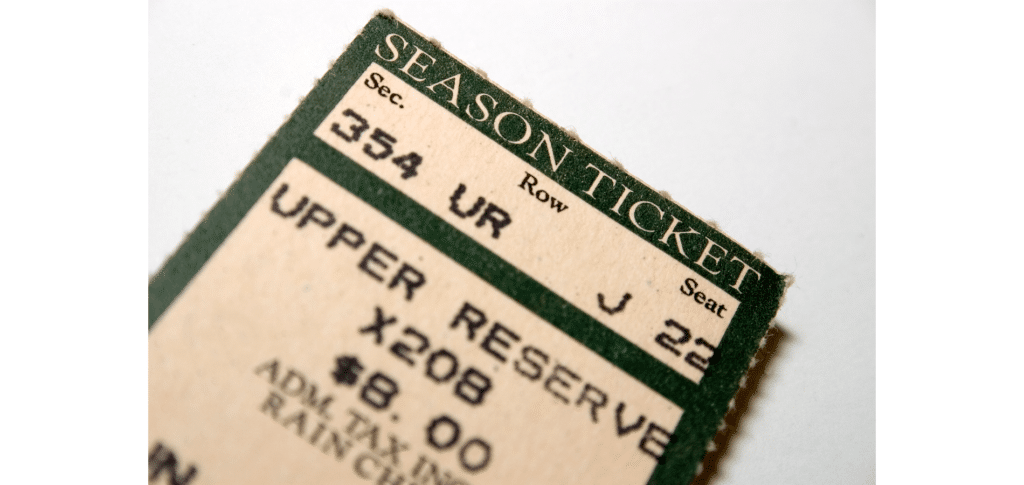It’s probably safe to say that the majority of children that aspire to grow up and become footballers would jump at the chance of meeting and personally interacting with a professional player.
Parents most certainly play a pivotal role in the career development of their children.
And a great way of keeping their kids motivated to fulfil their dreams is by providing them with the opportunity to meet the players that represent the club that they’ve grown up supporting.
One of the best ways that parents can achieve this goal is through helping their children become match day mascots.
Despite the perceived difficulty in attaining the role as a result of the massive demand and limited mascot spots, you can increase your child’s chances of being selected by taking a three-pronged approach.
This involves making a child mascot application through official club channels; enrolling your child in a local team where – from time to time – teams select a few kids to become mascots, as well as participating in club competitions where one of the winning prizes is a chance to take to the field with the team before kick-off.
I’ll explain this in greater detail later in the article.
Why do football players walk out with a child?
But first, I wanted to tackle the initial premise of why footballers walk out onto the pitch before kick-off whilst holding the hand of a child.
So, let’s begin…
1. Clubs make extra money
One of the main reasons behind the pre-match routine is money.
With financial motivations becoming more and more ingrained within the sport, clubs have become quite receptive to opportunities that will generate them extra income.
Back in 2014, it was revealed that clubs in the English Premier League were charging up to £600 for children to become match day mascots.
If you multiply a conservative figure of £250 per child by a standard starting eleven and extrapolate that number over the 19 home games in a Premier League season, you get approximately 52,000 pounds!
That is a significant sum of money to make, even by a football club’s high standards.
More so, clubs benefit from having child mascots by way of sponsorship opportunities.
If you visualise a standard tunnel exit before a football game starts, you will no doubt notice that the children that walk out with the players usually have a brand logo embedded onto their jerseys.
Companies pay clubs a lot of money for the chance to have their brands on display in front of a massive audience.
A great example is when credit card company VISA launched their player escort program for the Africa Cup of Nations in 2019.
Perhaps an even better case in point was fast food chain McDonald’s player escort program which took place at the 2014 FIFA World Cup:
2. Promoting the game as a family-friendly sport
In the past, when legislation within the sport was not as stringent as it is today, football was seen by many as a particularly violent sport.
Alcoholism within the game was rife, and outbreaks of fighting between sets of players and even fans in some instances was known to happen quite often.
The game therefore painted a picture of toxic masculinity, which is why football governing bodies, clubs and associations rallied together to clean up the image of the sport which was usually seen as too dangerous for children to be involved in at any capacity.
However, now that child mascots have solidified their role as part of football’s supporting cast, parents are much more encouraged to get their kids involved in the game – be it physically on the pitch or even passively through things like football toys – and clubs play a more pivotal part in local communities with charitable work.
For even deeper insight on why player escorts are used, check out our article on why soccer players walk out with children, as it covers this topic in greater depth.
How to become a match day mascot
Now that you understand why child mascots have become part of football tradition, I’ll expound on the ways in which kids can become one.
1. Apply through official channels
Football clubs are known to provide direct opportunities for children to become match day mascots.
Chelsea are said to run an open ballot competition – held online every year – where 250 entrants will be selected at random to represent the club as a child mascot at Stamford Bridge.
Those who are lucky enough to have been selected are then added onto a waiting list and from then on, the club will be in contact with regard to the exact season and match day that their child will be expected to represent the club as a mascot.
More so, Chelsea’s application requirements include the child needing to be within the ages of 6 to 12 in order to be eligible, as well as needing to wear the full replica kit – be it home or away.
2. Enrol your child in a local team

I can comfortably attest to the fact that a child has a decent chance at being selected to be a club mascot by playing for a local football team.
One of my former colleagues at my previous place of work had children who loved playing the game and they used to represent a local team that was affiliated with Arsenal Football Club.
They would take part in organised training sessions after school with parents who had volunteered to be coaches for the season, and participate in competitive matches across the country against kids of similar age.
And once in a season they would offer a select few kids from the club the chance to become a match day mascot.
3. Participate in club competitions
When it comes to competitions, young children who watch or play football as a hobby are presented with the opportunity to become a mascot through something that may not necessarily be related to the sport.
A pretty notable example was Manchester City’s creative writing competition which they ran in 2017.
The Mancunian club partnered with Nissan to deliver three young fans between the age 5 and 12 year’s old the chance to be player mascots at their home game against Liverpool.
All the kids had to do to get involved was to pen a short 150-word story that recounted their favourite journey to a football game that Manchester City took part in.
The winner led out the City team alongside the club captain whereas the two runners up spots were simply player escorts for the match.
Such competitions are a great way for a club to strengthen their bond with the local community and their fanbase as a whole.
4. Purchase a club membership or season ticket

This is another way – albeit indirect – of becoming a match day mascot.
For example, as of 2019 at Merseyside club Everton, a young supporter between the ages of 5 and 12 can be chosen at random to become a mascot provided they are season ticket holders or members of a junior scheme.
Just keep in mind that selection through this method is far from guaranteed due to the sheer amount of fans who have memberships or season tickets.
Do you have to pay to be a mascot?
The answer to this question depends on the club that a child is trying to become a mascot for.
At clubs like Everton, as you can see above, there is no direct payment that needs to be made for a child to become a mascot. It is simply through a process of random selection from a group of junior membership or season ticket holders that determines the outcome.
But other sides like West Ham charge quite a hefty fee for this privileged match day experience, as parents are expected to fork out hundreds of pounds.
Final thoughts
I hope this article has provided you with all the information you need on how to become a match day mascot.
As you can see, applying directly with the club you support is probably the best way to become a match day mascot. This is because the pool of successful applicants is much wider and the club provides those fortunate with a guarantee by adding them to a waiting list.
You leave a lot less to chance this way than through other methods such as competing in club competitions, enrolling your child in a local team or hoping to be selected by virtue of having a junior club membership or season ticket.
If you enjoy the content that I create and would like to buy me a coffee, then I’d really appreciate it!
Any money that I earn through this donation will be re-invested into more content for this website.
Additionally, by sending in a donation you’ll also receive a copy of my recently released 190+ page eBook on Soccer Ball Care, as well as be subscribed to our mailing list where you’ll be regularly informed on the latest developments concerning the Soccer Whizz blog.
- Future Icons: Europe’s Emerging Midfield Maestros Set for Glory - December 4, 2023
- Kickstarting a Revolution: How Soccer Transformed the United States Over the Last Four Years - October 7, 2023
- 4-1-4-1 Soccer Formation [Analysis] - September 23, 2023

